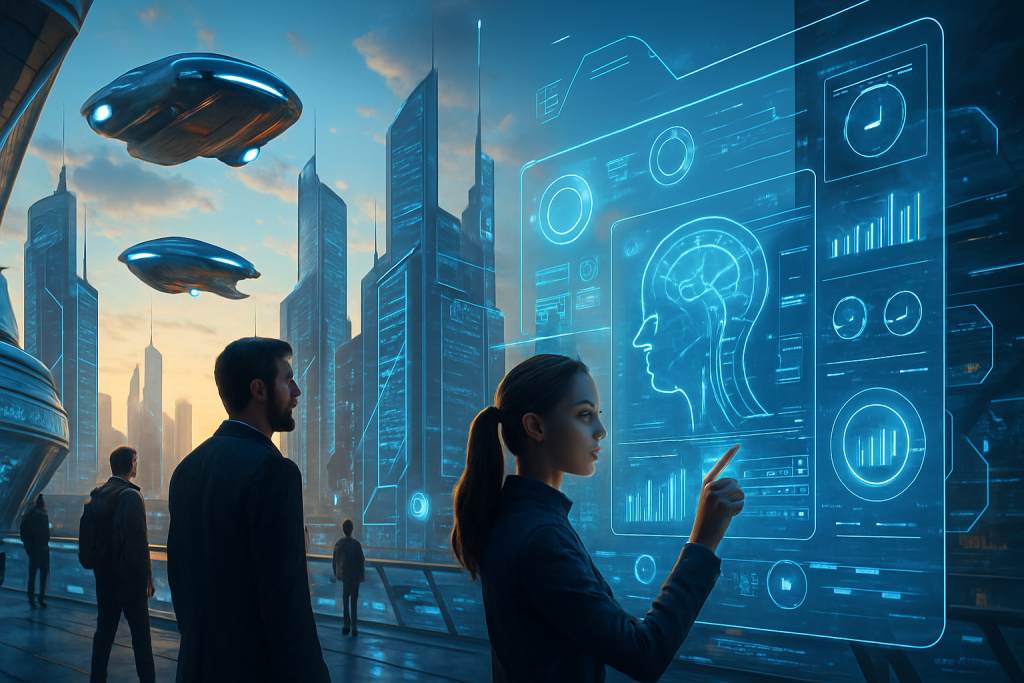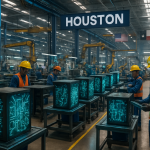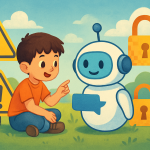The robots are coming. Okay, that’s a bit dramatic. But a new survey, published just yesterday in the prestigious Journal of Artificial Intelligence Research, is sending ripples of both excitement and, let’s be honest, a little bit of existential dread through the tech world. This isn’t some fringe prediction from a lone wolf researcher; this is a consensus emerging from the very heart of the AI community.
The survey, a collaboration between AI Impacts and researchers from Oxford and Bonn, polled a whopping 2,778 authors who’ve presented at top-tier AI conferences. These aren’t just casual observers; they’re the architects, the engineers, the ones actually building the future. And what they’re saying is… well, things are moving faster than we thought.
Think of it like this: remember in “Back to the Future Part II” when Marty McFly traveled to 2015 and encountered self-lacing shoes and hoverboards? We’re past 2015 now, and while we may not have *perfected* those technologies, the spirit of innovation is alive and well in AI. This survey suggests we’re closer to Doc Brown’s vision than we might have imagined.
The million-dollar question (or, more accurately, the multi-trillion-dollar question) is: when will AI reach human-level performance? When will we have systems that can not just beat us at chess (sorry, Kasparov), or generate passable art (looking at you, DALL-E), but genuinely perform any task better and more cost-effectively than a human?
The answer, according to this survey, is… potentially sooner than you think.
The experts now assign a 50% probability to that happening by 2047.
Let that sink in. 2047. That’s not some far-off, sci-fi dystopia. That’s within the lifetime of many people reading this. And, crucially, it’s a full thirteen years earlier than similar estimates from just two years ago in 2022. That’s a seismic shift in perspective. It’s like the AI community collectively hit fast-forward on their VCR (yes, I’m dating myself, but the analogy works!).
Why the Sudden Acceleration?
So, what’s driving this newfound optimism (or, depending on your perspective, pessimism)? There are a few factors at play. The most obvious is the incredible progress we’ve seen in recent years with large language models (LLMs) like GPT-4 and similar systems. These models, while not perfect, have demonstrated an astonishing ability to learn, adapt, and generate human-quality text, code, and even images. They’ve shattered previous assumptions about what AI is capable of.
Furthermore, the survey likely reflects the growing confidence in emerging AI architectures and training techniques. Think of it like the difference between a biplane and a jet. We’ve moved beyond tinkering with rudimentary AI models and are now building incredibly complex and powerful systems.
And, of course, there’s the snowball effect. As AI becomes more capable, it can be used to accelerate its own development. AI is now being used to design better AI, leading to a virtuous (or potentially vicious, depending on your outlook) cycle of innovation.
The Ripple Effects: Who Stands to Gain (and Lose)?
The implications of this accelerated timeline are staggering. The economy, labor markets, societal structures- everything is potentially up for grabs. Let’s break it down:
The Economy: On the one hand, human-level AI could usher in an era of unprecedented prosperity. Imagine a world where machines handle all the drudgery, freeing humans to pursue creative endeavors, scientific breakthroughs, and personal fulfillment. Think Star Trek’s replicators, but for everything.
On the other hand, the transition could be incredibly disruptive. Entire industries could be automated, leading to mass unemployment and social unrest. The question then becomes: how do we ensure that the benefits of AI are shared equitably, and that those who are displaced by automation are given the resources and opportunities to adapt?
Labor Markets: The impact on labor markets is perhaps the most immediate and pressing concern. Blue-collar jobs have long been threatened by automation, but the rise of sophisticated AI now puts white-collar jobs at risk as well. Lawyers, accountants, programmers, even writers (gulp!) could find themselves competing with increasingly capable AI systems. The need for retraining and upskilling programs will be more crucial than ever.
Societal Structures: Beyond the economic and labor market implications, human-level AI raises profound questions about the very nature of society. What happens when machines can make better decisions than humans? How do we ensure that AI systems are aligned with our values and goals? Who gets to control these powerful technologies, and how do we prevent them from being used for malicious purposes?
Ethical Quandaries and the Ghost in the Machine
The philosophical and ethical questions surrounding human-level AI are particularly thorny. If an AI system can think, reason, and learn like a human, does it deserve rights? What are the moral implications of creating artificial consciousness? Are we playing God, and if so, are we prepared for the consequences?
These aren’t just abstract philosophical debates. They’re questions that we need to grapple with now, before it’s too late. We need to develop ethical frameworks and regulatory guidelines to ensure that AI is used responsibly and for the benefit of all humanity.
Think of the AI character Data from “Star Trek: The Next Generation.” He yearned to be human, to experience emotions, to understand the human condition. But his creators also grappled with the ethical implications of his existence, ensuring he was programmed with safeguards to prevent him from harming others. That’s the kind of foresight we need to apply to the development of AI today.
The Bottom Line: Prepare for Warp Speed
The publication of this survey is a wake-up call. It’s a reminder that the future is arriving faster than we anticipated. While the exact timeline for human-level AI remains uncertain, the trend is clear: AI is advancing at an exponential rate, and we need to be prepared for the profound changes that are coming. This isn’t a time for complacency or denial. It’s a time for proactive planning, thoughtful discussion, and bold action. The future of humanity may depend on it.
Discover more from Just Buzz
Subscribe to get the latest posts sent to your email.


